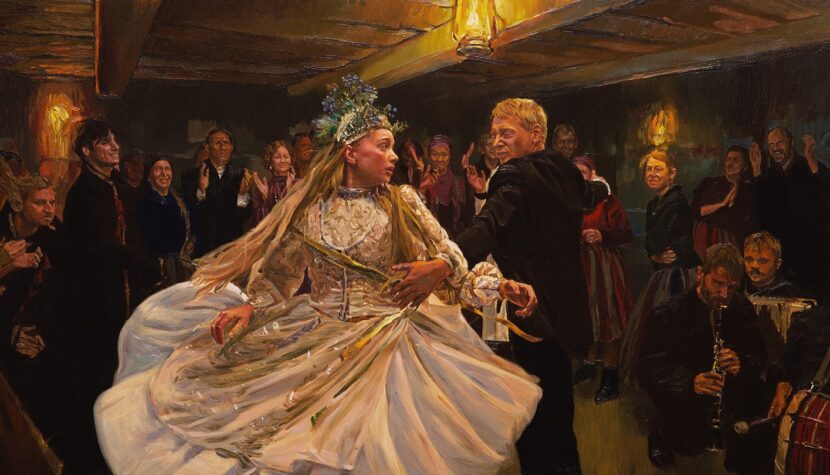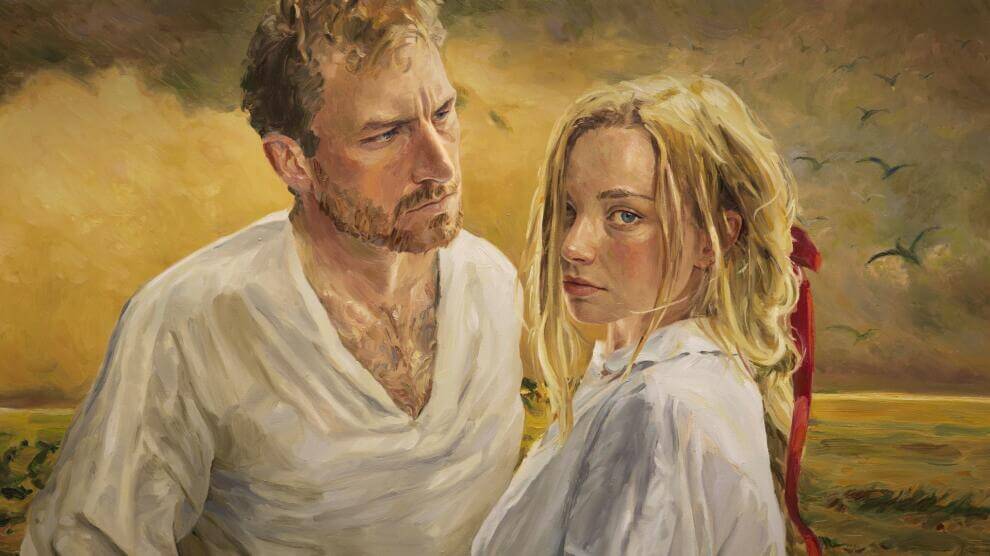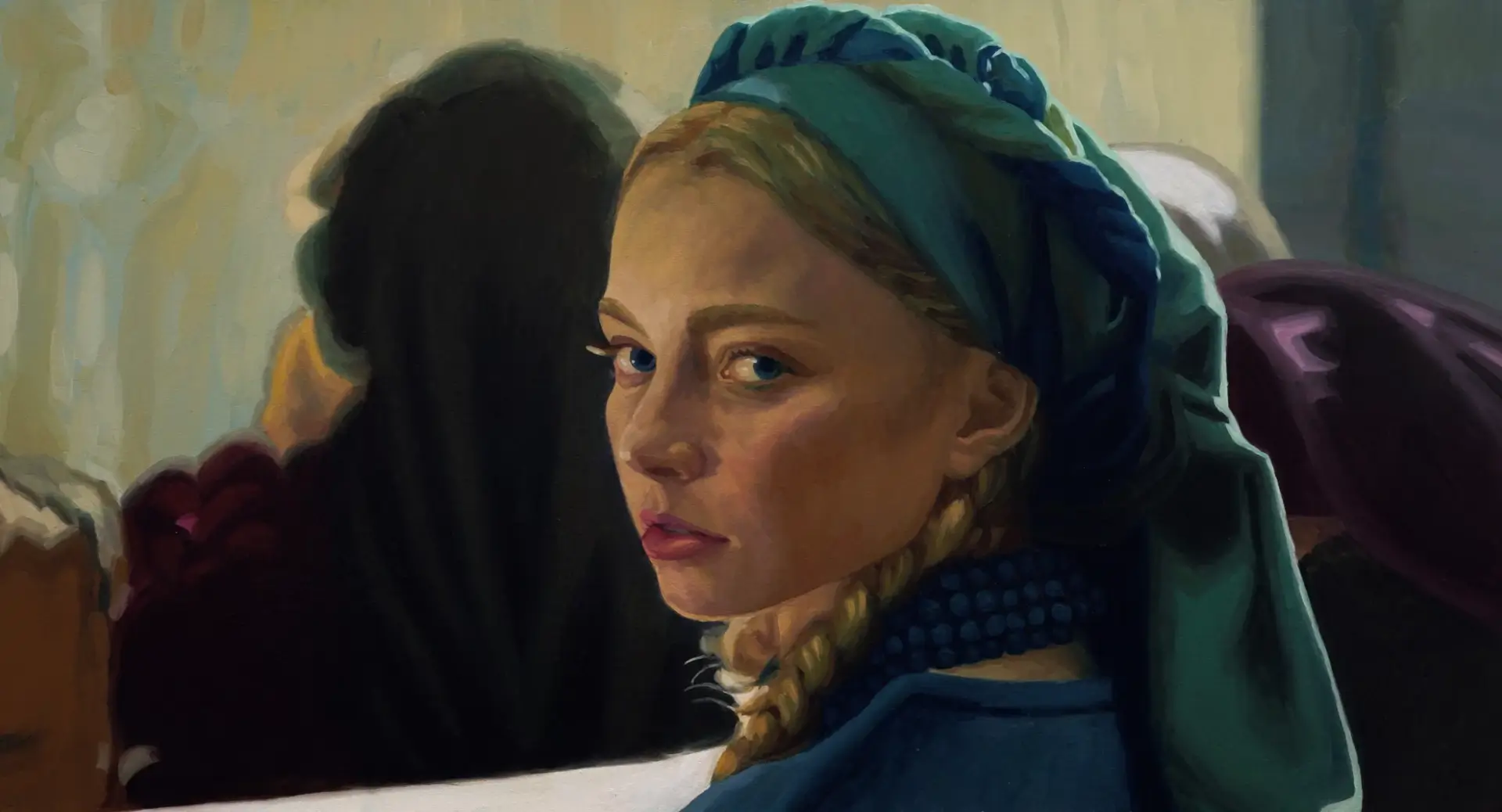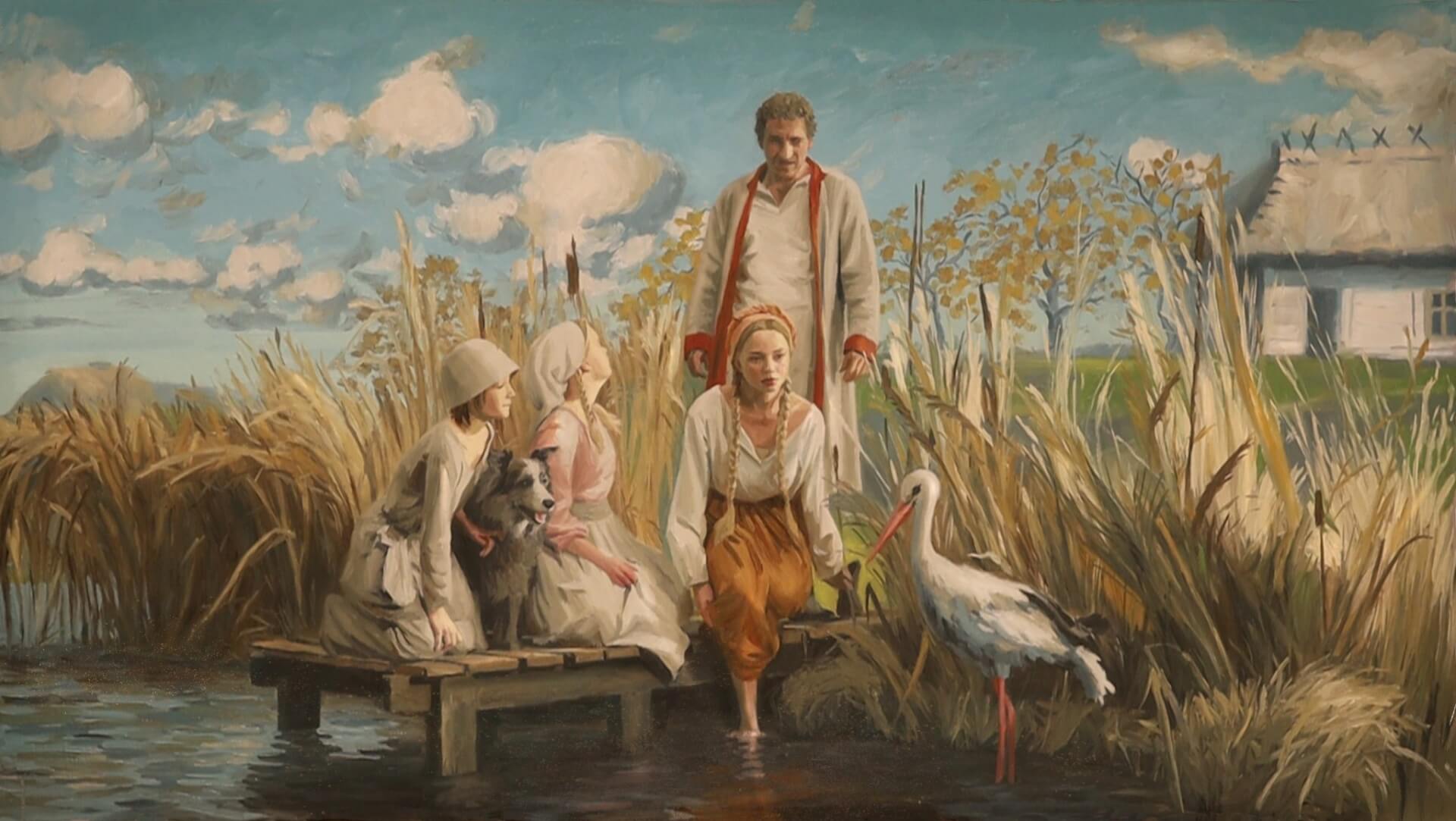THE PEASANTS. Something more than a visual spectacle? [REVIEW]

Already at the level of announcements and promotional images for The Peasants, it was clear that the film by DK and Hugh Welchman would be a kind of visual masterpiece. The greatest concerns were regarding how Reymont’s dense source material was treated. Therefore, after the screening, I breathed a sigh of relief because the Polish Oscar candidate is a brilliant, formally stunning production that, fortunately, is also simply a fascinating and emotionally engaging story about human demons, passions, bad people (or more accurately… men) in a beautiful world. At times, almost too beautiful. Here, I missed a bit of nuance in the world, which, even in its dirtiest, darkest moments, is simply a feast of extraordinary painterly shots, wonderful colors. This production also suffers a bit in terms of balancing some threads, an excess of characters that would fit well into material as extensive as the literary original but not necessarily into a 114-minute film. Nevertheless, these remarks are just the grumblings of a viewer seeking perfection because I left the screening satisfied and delighted with what I experienced. Well, at the level of cinematic experience, “Chłopi” are something exceptional.
It must be emphasized right away – audiovisually, The Peasants is simply a masterpiece. Here, however, there is no surprise. Folk music (perhaps not traditional Łowicz music, but Świętokrzyskie melodies, still producing an incredible effect) combined with painterly shots reminiscent of Chełmoński create something unique. Some frames are spectacular; I could frame them one by one and hang them on the wall. Even if there are moments where it is evident that digital techniques were used instead of a painterly approach. Any questioning of this formal layer can only indicate dilettantism. Yes, in the Welchmans’ film, you can question some elements and narrative-creative decisions of The Peasants, but execution-wise, it is unearthly quality. At times, I felt a kind of dissonance between the beauty of the image and the foulness of the content, scenes shown on the screen. This is one of my few criticisms – even at the level of colors, a slightly different interpretive key could have been applied. Or maybe the creators aimed for just such an objective, non-imposing interpretation effect? I also initially asked myself: what is the purpose of using such intricate painting techniques to tell this story? After all, the film would stand up even if it were devoid of its artistic formal layer and remained a classic acting production. I think the issue is that, thanks to the painterly nature of the image and its marriage to folk melodies, we get a completely new cognitive dimension, allowing us to orbit somewhere between bucolic dream and reality. Dancing before our eyes are splashes of colors, hues, and shapes, helping us enter a space between the real and unreal world. And it’s not a world of trinkets and kitsch but culturally rich, enchanting with a palette of the diverse reality of the past. It may not be easy to get used to the visuals presented in The Peasants, especially at the beginning; you can experience a slight dizziness. Later, however, we are drawn into a story full of passion, folk truths/lies, and the harshness of a world that can truly be cruel. Then the image becomes a carrier of content, and The Peasants win the most.

I am incredibly happy that despite narrative simplifications, the use of certain shortcuts, cuts, the essence of Reymont’s literary original was preserved here. It was packaged in a very accessible form, with added modern narration. However, the backbone remains the same. The film captured my sensitivity already at the level of subtle exposition, setting up pawns on the board. The first act is fantastic for me; its pace is perfect, and the portrayal of the world is excellent. Later, it was not always as good with these elements – sometimes it’s too hurried, and at other times, the action slows down for no reason. The balance of some threads leaves something to be desired. However, after the screening, I was amazed at how dynamic and nuanced a film we received. Even if Jagna’s creation and development were not exactly what I expected (overall, her story arc is the least motivated and least consistent of all), it is still an incredibly dynamic, ambiguous character. The very premise of constructing the main character in this way was completely different from what we know – it is no longer a femme fatale but a victim. The creators don’t play moments with the viewer – based on Jagna, they show the entire original brutality of the village, violence, the cruel resentment of the hateful mob, falsehoods, and the eternal justification of men. On the script level, perhaps more could have been drawn from Jagna herself, added more edge, especially since Kamila Urzędowska is phenomenal in this role. Fortunately, the final scene with this character remains in my head – an undisputed masterpiece that works on the level of message and metaphor (that ribbon!). There are many such sequences in The Peasants that aspire to be considered pearls of Polish cinematography – scenes of revelry, visions, Boryna’s death can be analyzed in classes as specific pearls of Polish cinematography. This film has such a future.

The characters that are theoretically secondary – Antek and Boryna – are very well portrayed. Acting-wise, Robert Gulaczyk and Mirosław Baka gave a show of very nuanced acting. The key here is their dynamism but also good characterization. We cannot evaluate, reject them unequivocally because, as Antek himself calls it, “they are part of the community.” It is the community, its realities, distinctiveness, and at the same time surprising closeness to modern times, that are the main theme of The Peasants. Ewa Kasprzyk as Dominikowa and Sonia Mietelica as Hanka are also excellent. Dorota Stalińska, once again in recent times, stands out in the role of Jagustynka. A character so well written and played is hard to find. At this point, however, I must draw attention to something that bothered me and, in my opinion, did not help to fully utilize the potential that lies in the world presented by Lipiec – an excess of side plots and characters placed in such a short format. I have no idea why some characters appear, for example, played by Julia Wieniawa or Jaś played by Maciej Musiał. While the latter serves as a springboard for events in the phenomenally conducted finale, overall, he turns out to be a background character. Unfortunately, because these are familiar faces, their prominence in terms of the narrative role is too significant, which can break the immersion for the viewer. Screen time in this regard should have been dedicated to the main family plot of the Borynas. It is the essence of the film, its most interesting element.

We’ve finally got the second very good, at times outstanding adaptation of Władysław Reymont’s The Peasants, and the first one that young people will gladly watch. And not just in our country. It’s not, as suggested in the loud statements by Mr. Tomek Raczek, just a colorful trifle. It’s a full-blooded story, shown in a modern accessible (also for foreign viewers) way. Besides the sensational visuals, the Welchmans have also created simply very good cinema that stands its ground on an emotional level. Even if I turn up my nose at some narrative shortcomings, in the overall reckoning, I left the cinema delighted. I got a film depicting the wildness of the village, natural and abnormal violence, the harshness of a world closer to nature, primitiveness, clashing with an unprecedented sensitivity, passions, and needs. This film is shamelessly tailored to a very broad spectrum of viewers and will be our export commodity. So, I’ll be rooting for it.

